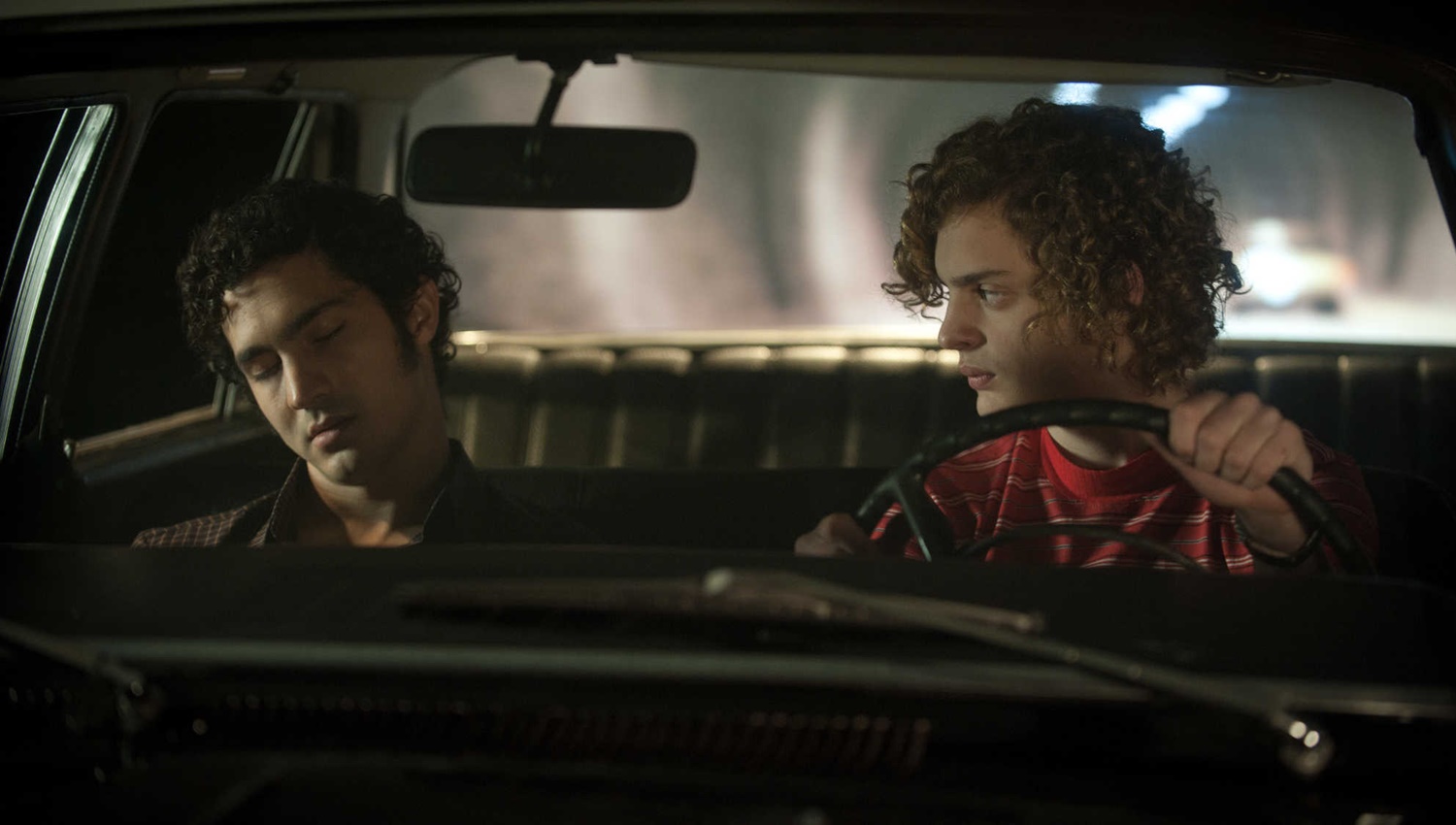
El Angel
Dustin Chase
Writer-director Luis Ortega has created a novel biopic of the famed “Death Angel” thief and murderer Carlos Robledo-Puch. The events of the crime and the psychology of this 17-year-old are shocking and gruesome. Ortega creates a parallel between the baby-faced teenager and the film’s stunning production value and cinematography juxtaposed with such vile circumstances. Ortega balances what we see with equal parts shock and intrigue and keeps things just short of being utterly repulsive by omitting many of Carlos Robledo-Puch’s more heinous crimes from the story. The actions of Robledo-Puch seem bizarre coming from a teenager with big bouncy curls and pouty lips, played by newcomer Lorenzo Ferro. Ortega also creates an unusual sexual tension between Carlos and his partner in crime that keeps the audience guessing where that plot line is going.
“I was born a thief,” Carlos (Ferro) says. From an early age, he began taking things that didn’t belong to him. Instead of keeping the things he stole, he gave them away to get others to like him. Money, jewelry, motorbikes, and eventually guns after he teamed up with classmate Ramón (Chino Darín). Their friendship grew out of a punch to the face to become as close as brothers and eventually something more. Ramón’s father, Jose (Daniel Fanego), an ex-con, benefited from and encouraged this friendship, making them all very rich. It was the guns that really excited Carlos most; he was a natural whose shots never missed. “This guy is a genius,” Jose said after meeting Carlos only once. Most people who came into contact with the well-mannered Carlos liked him, but he looked at them the way he looked at the world, something for him to take or leave behind, depending on his mood.
Ortega has figured out a way to deliver something truly unique within the crime genre.
Ortega does an excellent job of showing how this 17-year-old boy made all the adults around him uncomfortable. Jose is perhaps the only person in this version of the story that Carlos respects. While this story could have been told a multitude of ways, Ortega has figured out a way to deliver something truly unique within the crime genre. The soundtrack is a “trippy” blend of carefully selected songs from the 70’s that set the tone and mood. Vivid colors are always present in the frame. The editing does its part to keep the viewer engaged and curious to see what madness will come from Carlos next. The story maintains its focus on “El Angel” and doesn’t veer off into a tangent or become enthralled with the details of the crimes. The flirtation with dark, ironic comedy is another element that energizes most scenes.
While this film isn’t the most accurate portrayal of Robledo-Puch (who is still serving a life sentence), including some of his darker crimes would have undermined the vision Ortega set out to create. This adds to the discussion of another of this year’s biopics, Bohemian Rhapsody. Specifically, when is it ok to omit facts or rearrange their sequence in order to make actual events fit the filmmaker’s narrative? Submitted as Argentina’s foreign language entry for the 91st Academy Awards, El Angel is a fascinating character study made up of facts Ortega carefully curated from the whole story.
Final Thought
An intriguing crime story that balances beauty and terror well.
